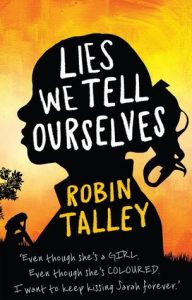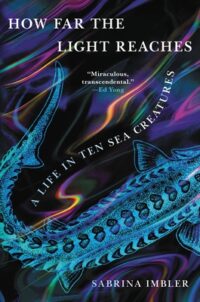“We’re not allowed to touch any of them, no matter what they do to us”
Lies We Tell Ourselves by Robin Talley was a difficult book to read, but an important one. While it is a fiction book, it is realistic; it could have happened. I found this book at the library. It hadn’t been on my radar but don’t you just love when you recognize books as being queer that’s to their covers?
Lies We Tell Ourselves is set in 1959 in Virginia during Integration and it tells the story of Sarah – one of the first few black students who are trying to integrate into a previously all white school – and Linda, the daughter of a newspaper editor who heavily influences people and is against forced integration. Sarah is one of three senior, who try to take care of their younger peers. Sarah’s sister Ruth also is one of the new students and so Sarah is constantly worrying about her.
The high school is a hostile place. Almost nowhere is safe and almost no one stands up for them. What follows from day 1 isn’t just bullying, it’s torture. Sarah thinks it won’t get better and she isn’t wrong: mostly because in public, things stay the same but in private, thanks to the classic group project, she starts to befriend (or be cordial with) Linda and her friend Judy who doesn’t mind that Sarah is black. Judy was in fact Sarah’s first connection. The development of Linda and Sarah’s relationship was realistic. It took time and they had a lot of disagreements.
Deep down, Linda knows she is wrong. Linda is trying to escape her father’s house by getting married to an older man. Despite being a public figure due to her father, even when she had not yet realized that she was wrong, Linda is compassionate. Yet, she cares very much what people say about her. Breaking down such ingrained feelings is evidently hard. The same goes for Sarah. She lets her parents dictate her life for her and to take her life back from them, it’s a long journey. The chapter titles and themes are all lies that Sarah and Linda tell themselves and the slow deconstruction of them.
Sarah and Linda both feel invisible despite being so public, no one knows who they really are. This bonds them in a way that nothing else would. They grow together and decide their own future. The romance part of the book I think was not as important as the rest of the plot but if romance were to overshadow something so harsh like integration and systematic racial hatred and discrimination, it would be a problem. Romance is not a solution, simply a by-product realisations and character development.
Every step is a struggle. The plot deals with some major triggers of violence. I found myself scared for the black students at every page that took place in school. There were some major incidences of violence, although I can safely assure that no one dies. There is also a lot of victim blaming, so beware.
It’s a difficult read but an important one. There is plenty of build-up for the relationship and issues aren’t magically resolved through attraction, which I appreciated. There is great character development, and I grew attached to the side characters as well: they were all so strong.
I’d recommend for anyone that has enough strength to read something like this. Something that didn’t necessarily happen as is, but with the possibility that the different instances did happen to people in the past and with the hard truth that some of these things still happen.



